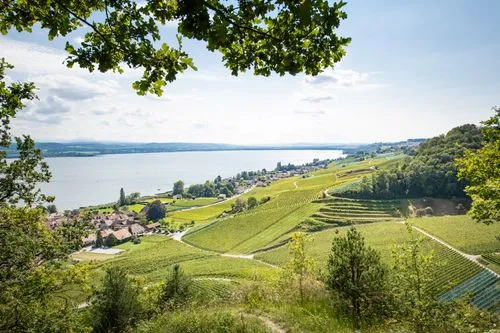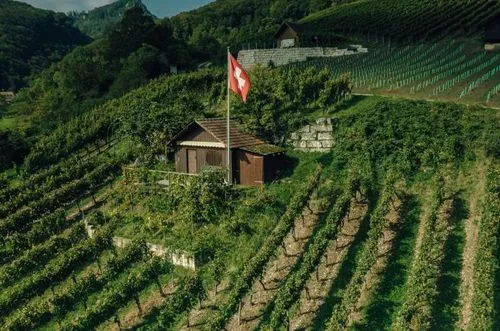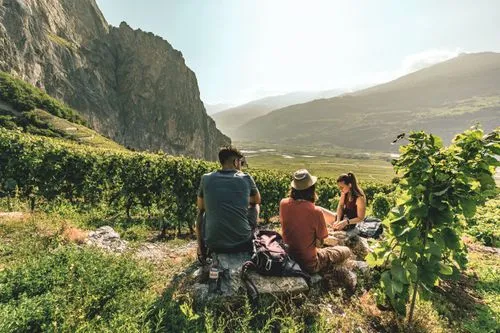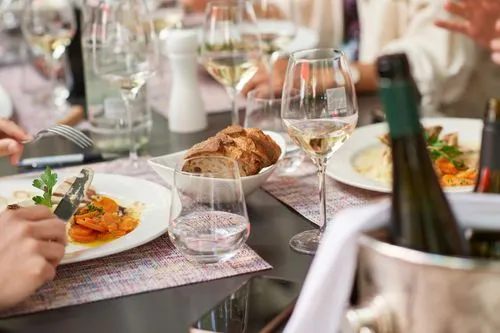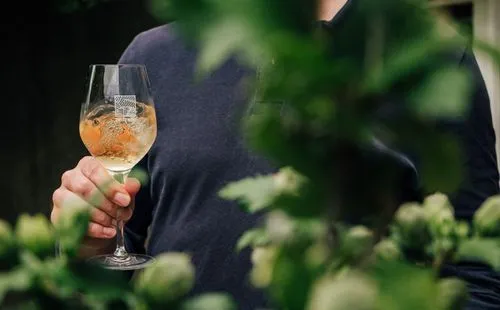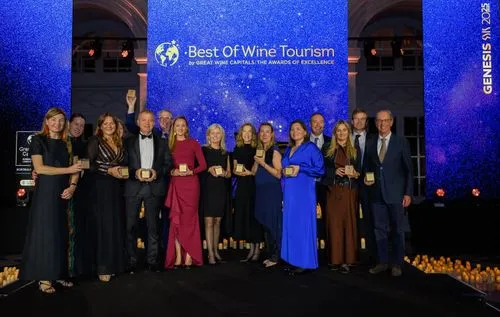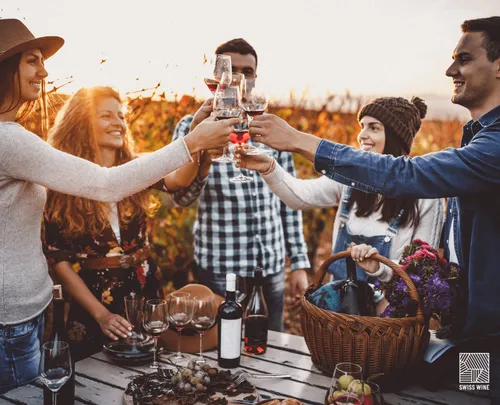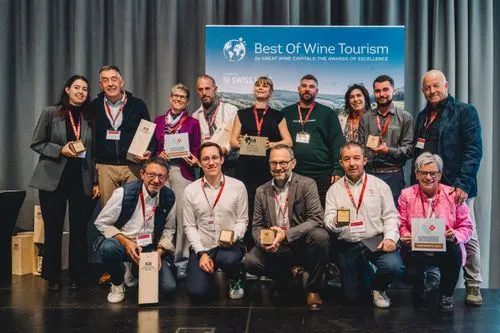From child in the vineyards to host with a passion for Swiss wine
David Schmid, what does Swiss wine mean to you?
It's a very emotional thing for me. My father used to make wine with friends as a hobby, and I often went to the vineyards as a child. That connection has never left me. It also developed professionally, although I originally come from the financial sector, which wasn't really my world. I started out in the restaurant business as a self-taught chef and later trained specifically for the industry, with wine playing a central role.
So it's a combination of childhood memories and vocation?
Exactly. As a result, I have a stronger connection to Swiss wine than to foreign wines. Some of my friends own vineyards, and I often helped out during the holidays. My taste has changed over the years: I drink more consciously today, often lighter wines, and with the trend towards regionality, my interest in local wines has also grown.
How would you rate the quality of Swiss wine today?
A lot has happened in the last 10 to 15 years. The quality has improved significantly. The Bündner Herrschaft region stands out for me in particular. Not only because of top winemakers such as Gantenbein, but also because Pinot Noir is produced there to an international standard. The region is reminiscent of Burgundy in terms of climate and geology.
How do your guests perceive Swiss wine?
You can feel the difference between the generations. Older guests sometimes still have preconceptions, along the lines of ‘I just don't like Swiss wine’. I then take the time to suggest something new and local. It's always about the overall package: the atmosphere, the food, the company. When I recommend a wine that I like myself, their enthusiasm is often contagious.
As head waiter, you play an important role in this.
Absolutely. At Osso, we are very regional and seasonal, working with local farmers – so it's only logical that this philosophy is also reflected in the wine list. Basically, my credo is: drink what you enjoy! In the end, it's the personal experience that counts.
One wine you recommend is Petite Arvine. What makes it special for you?
It has a lovely salty finish, is floral and fruity yet full-bodied – perfect with our grilled dishes, vegetables or cheese. It also goes well with white meat and pasta. It is an indigenous grape variety from the Valais, so it's a genuine Swiss original with a strong heritage. I generally drink more red wine, but a Petite Arvine is a good choice with food.
Which audience is particularly open to Swiss wine?
Younger people, I would say. Swiss wine used to have a bit of a bad reputation, but that has changed. Today, there is much more freedom in cultivation and less regulation, while labels such as organic and Demeter are becoming more important. This allows for exciting developments. Many people are discovering Swiss wine for the first time.
How do you see the future of the Swiss wine scene?
Very exciting. Sparkling wine, for example, is becoming increasingly important, traditionally produced and of a high standard. Natural wines are currently in vogue, as are low-alcohol wines. People are generally drinking more consciously and less, which we are also noticing at Osso. There are more orders for alcohol-free sparkling wine, tea alternatives and mocktails.
Should Swiss winemakers adapt even more to this trend?
Yes, because ultimately it's the consumer who decides. Those who remain flexible have a clear advantage.
Which Swiss wines do you always have at home?
I'm a fan of Pinot, especially from the Bündner Herrschaft and Lake Zurich regions. When it comes to white wine, I like Räuschling and Müller-Thurgau. Again, it's clear that I like to drink what comes from my local area. It's a completely different feeling when you know the people behind it.
Related events
Related Articles
All the news about Swiss wines and exclusive reports.
To visit our site, you must be of legal drinking age in your country of residence.
